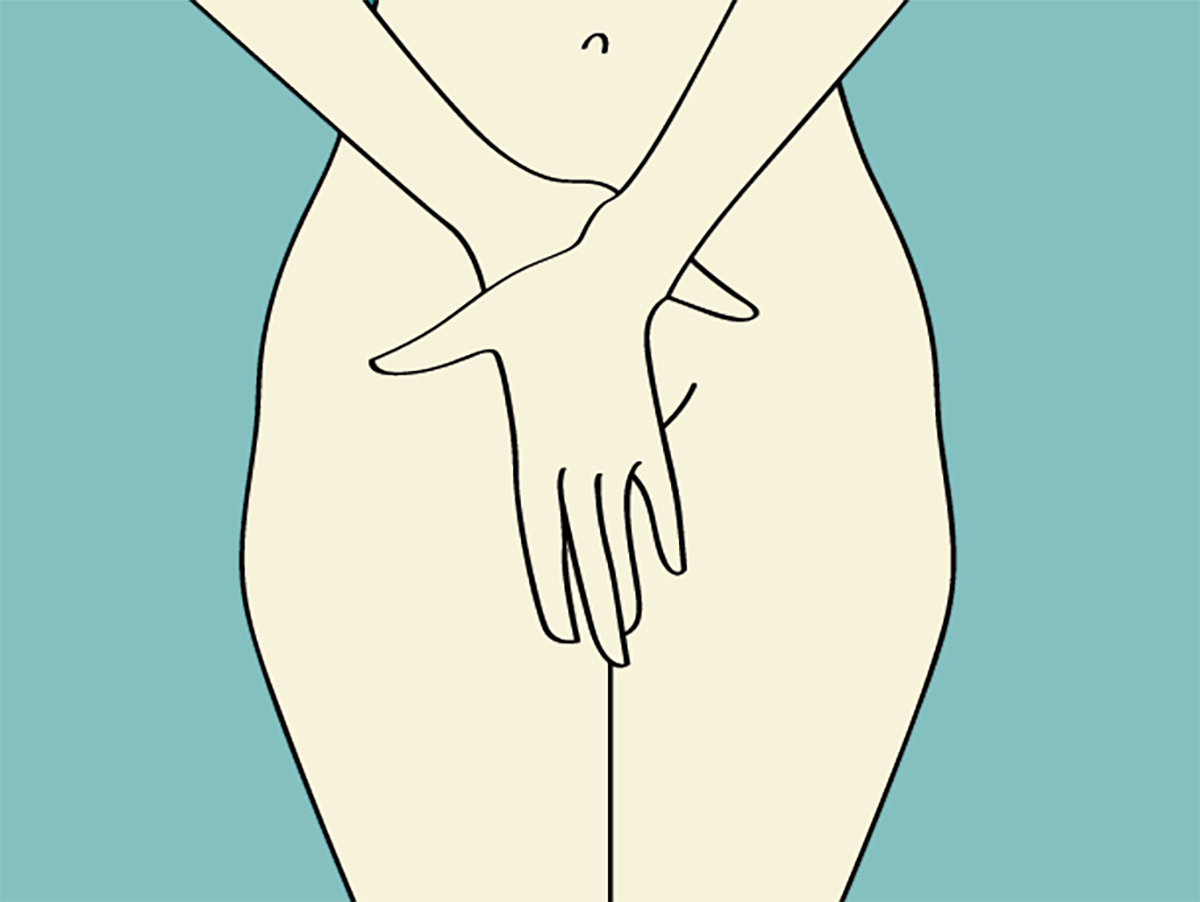What to Know if You’re Worried About a Smell Down There

Is your scent normal or a little funky? Experts weigh in.
In early 2020, when Gwyneth Paltrow, connoisseur of all things expensive and woowoo, released a $98 citrus and cedar-scented candle called “This Smells Like My Vagina,” (and most recently, one called “This Smells Like My Poosh”), it set off the usual social-media firestorm. But it also prompted a discussion of what a vagina smells like (everyone’s, not just Gwyneth’s).
Limited sex education, misrepresentations on movies and television, and oh, you know, a hefty dose of misogyny, all contribute to the idea that people with vaginas should be very concerned about how they smell down there and find a way for it to smell “better.” And so no matter what you might think of a vagina candle, it flipped the script in a refreshing way.
(Related: I Need You to Know: All Vulvas Are Beautiful)
What’s a “normal” vaginal smell?
According to Dr. Carolin Klein, director of Vancouver’s West Coast Centre for Sex Therapy, your vagina isn’t supposed to have a particular scent.
“This question is like asking what your skin is ‘supposed’ to smell like,” she says. “The smell will vary from person to person. Unless something is wrong, the smell will be mild.”
Turns out, this information has been available to us for decades: A study conducted in 1975 looked at 90 samples of vaginal secretions from 10 women at varying times and found each vagina is “complex, highly individual” in odour.
“It’s much easier to answer what our vagina is not supposed to smell like,” says Dr. Klein. A fishy or musty scent is usually a sign of changes to vaginal bacteria, which can be due to a variety of medical conditions, and should be discussed with a doctor.
Why does my vagina smell?
Vaginal bacteria is called lactobacilli, and it’s a healthy kind of bacteria that produces lactic acid, which kills or reduces growth of harmful bacteria. When lactobacilli and, therefore, lactic acid, drop—which can be due to menstruation, stress or hormonal changes—odour-producing bacteria rise, which isn’t necessarily cause for caution, unless the change is sudden and strong. Other common issues such as bacterial vaginosis, trichomoniasis, a retained tampon and incontinence can also impact the balance of vaginal bacteria.
“When we notice changes in our bodies, including smell, they can deliver important messages about our health and wellbeing,” says Tracey Jastinder Mann, a Toronto-based psychotherapist. “Sometimes our bodies change as we might be moving through our cycle, or experiencing stress or changes in our health that can change our odours. All of this is normal and a part of our body’s messaging.”
What can I do about a vaginal odour?
Well, first of all, don’t go running to the store for a pineapple, because, as Dr. Klein says, the idea that eating it will help you smell better down there is nothing but a myth.
“It is actually impossible for the foods we eat to directly impact vaginal smell,” she says. “For a food to impact the vagina, it would have to be so potent that it survives the digestive process and makes it to the vagina. But very little fluid from the bloodstream makes its way to there anyway. And if a food ever were that potent, then it wouldn’t just show up in terms of the smell of the vagina—it would affect the smell of your whole body!”
The best solution—as with most health-related concerns—is to visit your doctor. Most “smells” are normal and attempting to “fix” them by using things like vaginal wipes and soaps can actually cause more vaginal odour by negatively impacting the healthy bacteria in the vagina. And besides, science shows the vaginal cleaning products industry is more interested in cashing in rather than keeping you healthy.
How can I safely wash my vagina?
The vagina and the vaginal opening do not need to be washed. What you should wash—and wash regularly—are the labia majora (the outer, hair-bearing lips), the mons pubis (or pubic mound, which is the mount of fatty tissue over the pubic bone and typically covered by hair) and around the anus, says Dr. Klein. And don’t bother with any fancy cleaning products or even soap, which can leave you dry or irritated. Instead, opt for a fragrance-free cleanser.
Why am I still worried about smelling unpleasant?
We know the society we live in is a patriarchal one, in which women’s bodies are constantly scrutinised. That makes it easier to believe the myth that basic and normal changes in smell mean there is something “wrong” with our bodies, says Mann. “If we internalize these narratives, we can feel shame around changes in our bodies,” she adds.
Here’s the truth: Research shows that vaginal smell can actually be arousing because everyone’s is unique, says Mann. “It can inspire connection and familiarity.”
Instead of feeling shame, try to take inspiration from Ms. Paltrow, who defined her vagina candle as “funny, gorgeous, sexy, and beautifully unexpected,” for a mood that exudes “fantasy, seduction, and a sophisticated warmth.” That’s an idea worth celebrating—and you don’t have to spend $98 to do it.
Next: Why Squirting Orgasms Are a (Really) Good Thing—And How to Have One




